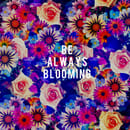It’s the holiday season, which means endless conversations with family and friends (and friends’ parents) over dinner tables and cocktail weenies. These bouts of small talk can take a number of awkward turns when you’re either applying to, attending, or about to graduate from college. These turns often become even more awkward when you are a double major in English and Anthropology at a tiny liberal arts school surrounded by friends and family who received or are pursuing more conventionally practical career paths.
After a while, a pattern in questions starts to appear:
“So what exactly is [insert major here]?”
Usually the opener, this kind of question is key to establishing the tone of the conversation. If Aunt Jenny is legitimately curious about the study of Anthropology, then the stress level of the conversation goes way down. However, if Aunt Jenny has her slightly over-plucked eyebrow raised and a bit of an edge in her voice, then you’re already placed in a position where you feel the need to defend yourself.
The key here is not to get defensive. You chose that major because you are passionate about it, so show that eagerness! Make sure to be clear and concise, though—Aunt Jenny might just need a quick definition before she continues on her warpath.
“Why on earth did you choose [insert major here]?”
There are varying iterations of this question—“Huh. How did you wind up there?” “What inspired your decision?” “Why did you fall in love with that field?”—that reveal yet another myriad of tones, and it’s important to remember the backgrounds of the people who are asking those questions. If Aunt Jenny went to a little liberal arts school like you do, then your answer would be different than if she didn’t attend college, went to trade school, or took the engineering track at a large state school.
Remember again to keep your tone from sounding defensive. This is your chance to prove your passion. Talk about how you found your major, how you took a class on a whim and fell in love with the readings or the discussions or the subject matter.
“What kind of job do you get with a [insert major here]?”
Here’s the real kicker. Aunt Jenny has swooped in for the kill, and this is where I have floundered in previous years. I barely knew what I was studying, much less what I was going to do with my life. I still don’t really know. However, not only do I have a few career paths that I’m considering, but I’ve also found a way to demonstrate the value of my broader, less career-focused majors.
The English major is a bit easier to explain: being a good communicator is crucial in any workplace, and writing skills are applicable to just about any field. Being able to think critically from different theoretical perspectives and express these ideas is another applicable skill that is incredibly marketable.
Anthropology, however, has taken a bit more rumination on my part. This reflection has actually been really useful, because in explaining the applicability of an anthropological perspective has made me fall in love with the discipline even more. Here is the clear and concise gist of what I find valuable and applicable about an Anthropology major: it has helped me become more aware and accepting of alternative perspectives. Whether that means an increased capacity for finding unique solutions to difficult problems or simply being able to sympathize and empathize with those who have different experiences from mine, the anthropological lens has had an immeasurable impact on my growth since walking into my first class.
Because of Anthropology, I have become more willing to consider alternate opinions, and my increased awareness of the wide variety of perspectives and experiences has allowed me to step out of my head and look at the world I live in with a more critical, analytical eye. In fact, I think these classes have prepared me for precisely these conversations—I know that Aunt Jenny is really just trying to help me, and that the value of an Anthropology degree seems much less applicable and useful than, say, Advertising. But while it does take a bit of thinking and explaining, the broad, all-encompassing natures of my two majors are applicable, even if they don’t create a clear-cut path in the future.
Becoming confident in answering those questions has also made me much more confident in my own future. I don’t have a path set out for me, and while that is a bit terrifying to think about at times, I’m also excited at the possibilities. That’s what these majors have built for me: a nearly endless list of possible paths to pursue and explore.
So next time Aunt Jenny totters over, bells tinkling on her tacky Christmas sweater, remember to be confident in your decision and excited to explain why it’s so valuable to you—and the rest of the world.
Image Credits: Feature, 1, Writer’s Own


